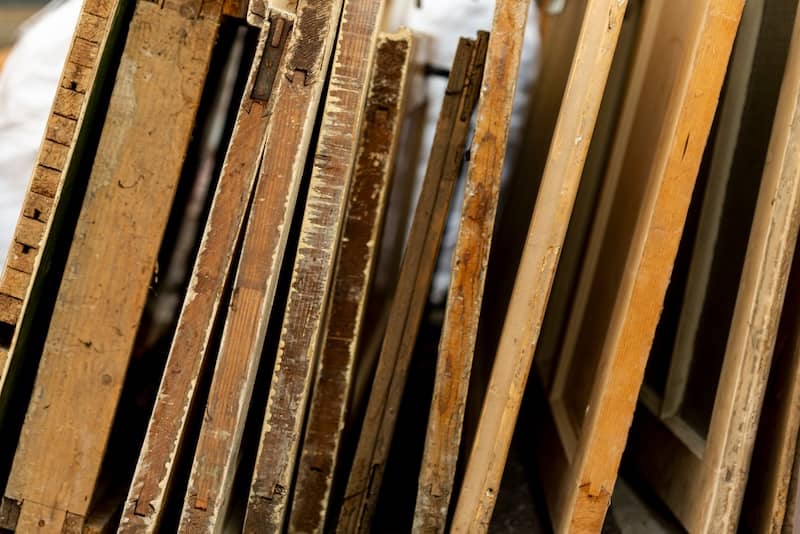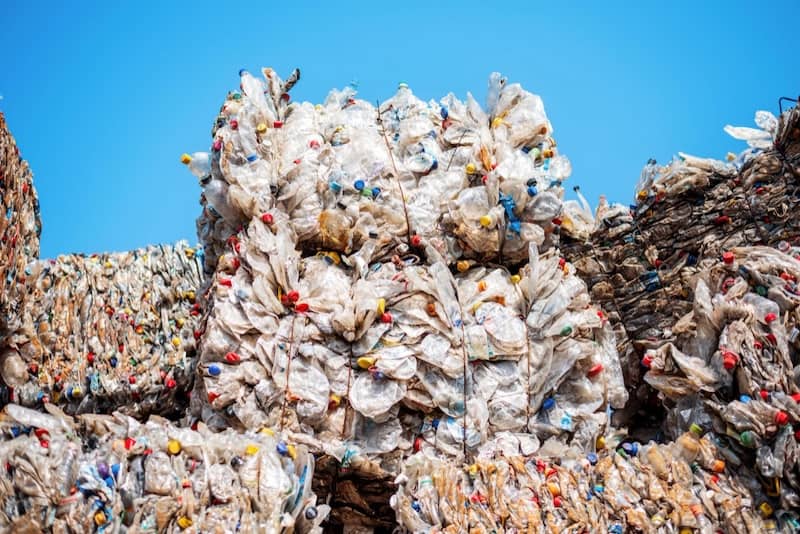Recycling has gained a lot of traction in the United States in the last 50 years. The first Earth Day was April 22, 1970. As part of the celebration, a contest was held to create a symbol to signify recycling. Gary Anderson, a student at the University of Southern California, won. His design, which consists of three folded arrows in the shape of a triangle, has been used ever since. Today, we see this symbol all around us, telling us what products have been or may be recycled or labeling a basket as a recycling bin. Still, many products that can be easily recycled are not.
Perhaps part of the reason behind our reluctance to recycle is that we don’t see the problem. We put our trash bins out at the curb, and the waste management trucks take it away. We don’t see the piles building up at the landfill or the plastic bags floating in the ocean. Waste tire recycling, for example, did not gain momentum until piles of rotting tires in vacant lots became a constant visual reminder of the problem. Yet, we know that we contribute to the issue at an alarming rate, and our excess waste is harming wildlife.
Getting friends, family, and neighbors to recycle their reusable waste can be difficult. Talking to them directly can lead to a conversation that sounds preachy. So, what can you do to encourage recycling? Here are just a few ideas:
Set the Example
Actions speak louder than words and are often better received. Instead of telling your coworkers all the reasons why they should reduce, reuse, and recycle, show them how you reduce your waste. They will notice the small things that you do every day. So, bring your lunch in a reusable container and use a ceramic coffee mug from home instead of the insulated cups in the break room. These are simple tasks that anyone can adopt without a lot of extra work.
Make it Easy and Fun
Adding recycling bins in convenient locations in public places makes recycling easier for everyone. If you have an empty soda can in your hand and there is no recycling bin in sight, what are the chances that the can will end up in the trash can? You can further incentivize recycling by keeping track of how much recycling your neighborhood or office produces. Measure how much paper, plastic, and paper are recycled and let everyone know. Hearing that 10 bags of plastic water bottles were recycled instead of being sent to the landfill gives everyone a sense of accomplishment. Each person gets satisfaction from contributing to a cause bigger than themselves.
Share the Profits
Some recycling companies pay for raw materials. Aluminum cans, plastic bottles, and copper wire are just a few examples. If you make a profit from the recycling efforts of your family, neighborhood, or office, share the rewards with everyone. Maybe that means giving the kids a little more allowance or throwing a block party. When people receive reward for their efforts, they’re more likely to keep going and perhaps even step up their future efforts.
In 2017, Energizer partnered with Coop Norway, a supermarket chain, to increase battery recycling in Norway. To do so, they placed reverse vending machines in Coop’s grocery stores. The vending machines dispense money in exchange for batteries. Customers receive one Krono, or roughly 11 cents, per battery. This reward comes in the form of a discount coupon for replacement batteries. In Beijing, similar machines issue credits for transportation or phone minutes in exchange for plastic bottles. These rewards are small, but they provide another reason to do the right thing.
Recycle Bank offers similar opportunities to those that recycle here in the United States. If your waste management company partners with Recycle Bank, you can earn credits for recycling. Additional credits can be earned online by completing tasks that teach you about sustainability. Your credits can be exchanged for coupons or discounts at retailers such as Amazon and Target.
Exchange Recycling for Services
In Indonesia, only 50-60% of the garbage gets collected and disposed of properly. The rest of the trash builds up around houses and streets. Living among the dirt and waste is not healthy. It leads to a higher incidence of disease among the general population. Dr. Gamal Albinsaid recognized this problem and started the Garbage Clinical Insurance. This program allows residents to trade trash for health care services. The trash people bring in is sorted. Some waste is composted, and other items are recycled. Any profits earned through this process are used to pay for medical care. It is a win-win situation. There is less trash littering the streets, and more people have access to care.
Plan Outdoor Activities
Studies have shown that those who feel a connection to nature are more likely to desire to preserve and protect it. Plan an outing with family, friends or co-workers to go hiking, camping, fishing, skiing, or rent a cabin in the mountains for the weekend. It doesn’t matter what you do while you are there. Just relax and take in the scenery.
Recycling is essential to the future of our planet. Overall, we have made significant progress in cleaning up our act in the last few decades, even though only a portion of the world’s population recycles. Convincing people to participate in recycling programs may be simpler than you think. We each need to do our part in setting a good example. As we look for ways to make it easy and rewarding for everyone, we can significantly reduce the amount of waste we produce.




